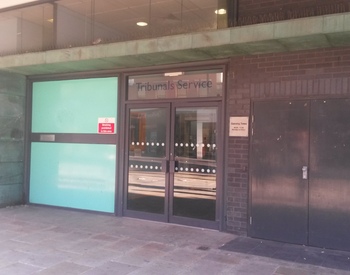May's controversial Civil Legal Aid (Remuneration) (Amendment) (Coronavirus) Regulations 2020 to be revoked
In an important development today, Duncan Lewis Solicitors reported that the Lord Chancellor had accepted the unlawfulness of new legal aid scheme for immigration and asylum appeals.
 Image credit: UK GovernmentWe covered the introduction of the controversial Civil Legal Aid (Remuneration) (Amendment) (Coronavirus) Regulations 2020 on EIN in May. The Regulations introduced a fixed fee for online appeals in the First-tier Tribunal (Immigration and Asylum Chamber). See the article here for background.
Image credit: UK GovernmentWe covered the introduction of the controversial Civil Legal Aid (Remuneration) (Amendment) (Coronavirus) Regulations 2020 on EIN in May. The Regulations introduced a fixed fee for online appeals in the First-tier Tribunal (Immigration and Asylum Chamber). See the article here for background.
Today, Duncan Lewis said: "Duncan Lewis represented three claimants who challenged the Amendment Regulations on the grounds that the Lord Chancellor had failed to conduct a lawful consultation before making the Regulations, and failed to gather the information he reasonably required to make a proper decision; that the Regulations were not rationally or proportionately connected to their statutory purpose; and that the Regulations result in the unlawful restriction of access to justice for the claimants and many others.
"The claim was an important one for all asylum and immigration appellants who qualify for legal aid. It was supported by overwhelming witness evidence from Duncan Lewis, the Immigration Law Practitioners Association, the Bar Council, Dr Jo Wilding, and letters of support from the Law Society and the Legal Aid Practitioners Group. The evidence supported the view that the scheme established by the Amendment Regulations did not adequately remunerate providers for the additional work required by the Online Procedure, and that providers who undertook this work may not even have recovered their costs. In the wider context of Legal Aid cuts and the precarious situation of many providers, there was (at least) a real risk of providers taking on fewer cases of this kind, leaving individuals with meritorious claims unable to effectively exercise their right of appeal to the FtT.
"Duncan Lewis' evidence demonstrated the context in which Tribunal appeal work is carried out and the heightened risks faced by providers under the Amendment Regulations. They calculated projected losses in the region of £50,000 or 1000 hours of unpaid work over a two years, and demonstrated that they were already experiencing significant difficulties in instructing counsel for complex protection and immigration appeals."
According to Duncan Lewis, the Lord Chancellor wrote to the claimants on 04 August accepting that the making of the Amendment Regulations had been unlawful, as the consultation had been inadequate and the Lord Chancellor had failed to satisfy his duty of inquiry.
Duncan Lewis says the Lord Chancellor has decided to revoke the Amendment Regulations and will instead put in place a temporary fee regime which will allow providers to undertake work under the Online Procedure in the knowledge that they will be remunerated at hourly rates.
Simon Robinson of Duncan Lewis said it was an important victory for all appellants at the First-tier Tribunal and their ability to access justice.
The Immigration Law Practitioners Association said today that it was pleased to confirm that the Lord Chancellor has accepted that the making of the Regulations was unlawful.